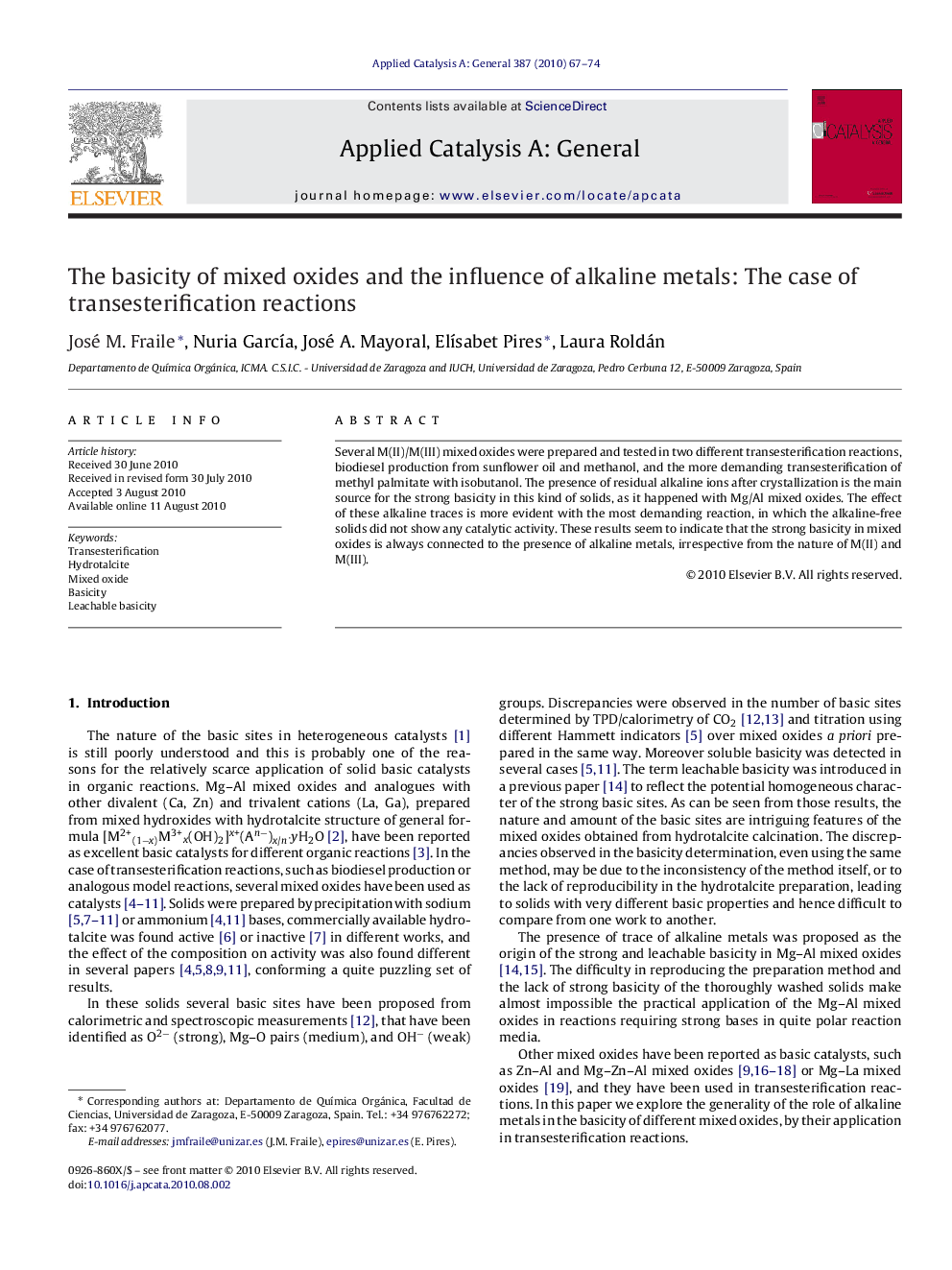| Article ID | Journal | Published Year | Pages | File Type |
|---|---|---|---|---|
| 41787 | Applied Catalysis A: General | 2010 | 8 Pages |
Several M(II)/M(III) mixed oxides were prepared and tested in two different transesterification reactions, biodiesel production from sunflower oil and methanol, and the more demanding transesterification of methyl palmitate with isobutanol. The presence of residual alkaline ions after crystallization is the main source for the strong basicity in this kind of solids, as it happened with Mg/Al mixed oxides. The effect of these alkaline traces is more evident with the most demanding reaction, in which the alkaline-free solids did not show any catalytic activity. These results seem to indicate that the strong basicity in mixed oxides is always connected to the presence of alkaline metals, irrespective from the nature of M(II) and M(III).
Graphical abstractFigure optionsDownload full-size imageDownload high-quality image (69 K)Download as PowerPoint slideResearch highlights▶ Alkaline metals are responsible for the strong basicity of mixed oxides. ▶ Alkaline effect is not dependent on the nature of the mixed oxide. ▶ Sodium sites can be leached to the reaction medium (leachable basicity). ▶ Sodium sites are responsible for catalytic activity in demanding reactions.
